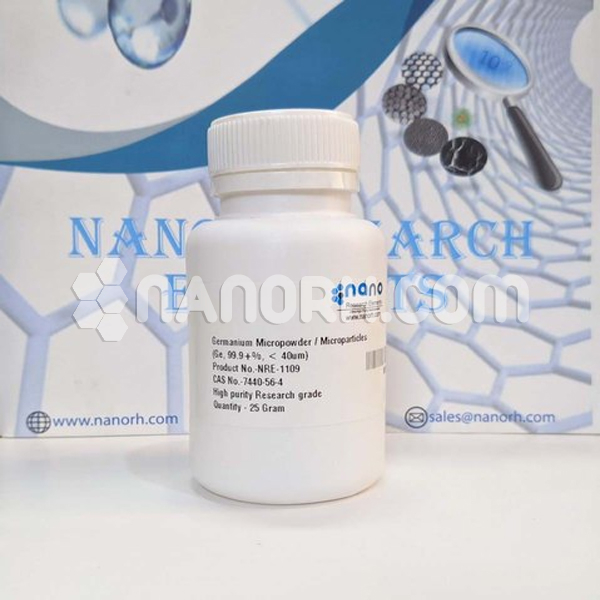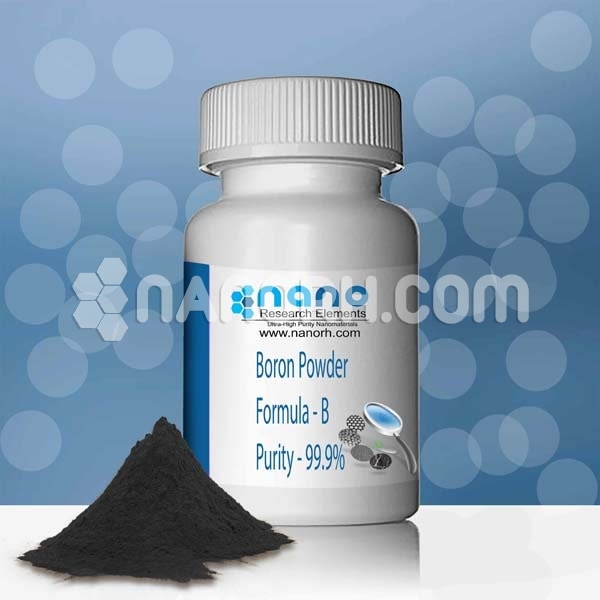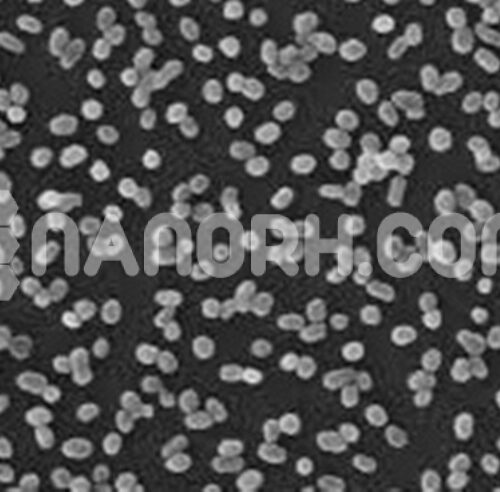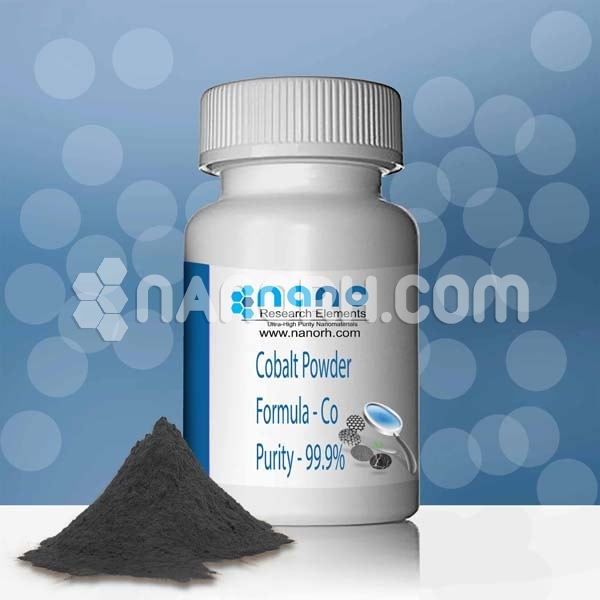| Germanium Micropowder / Microparticles | |
| Product No | NRE-8019 |
| CAS No. | 7440-56-4 |
| Formula | Ge |
| Molecular Weight | 72.64 g/ mol |
| APS | <40um (Can be Customized) |
| Purity | 99.9%(metal basis) |
| Color | Grey |
| Density | 5.32 g/ cm³ |
| Melting Point | 938 °C |
| Boiling Point | 2833 °C |
Germanium Micropowder / Microparticles Applications
Germanium powder, which is derived from the element germanium, has several applications in various fields due to its unique properties. Germanium is a semiconductor material, and its powder form can be used in the following applications:
Electronics:
Semiconductors: Germanium powder can be used in the manufacture of semiconductors, especially in the early days of semiconductor technology. Although it has largely been replaced by silicon, germanium still finds some niche applications in high-performance transistors and diodes.
Infrared Optics:
Germanium is transparent in the infrared spectrum, making it useful for the production of lenses and windows for thermal imaging devices, night vision systems, and infrared cameras. It is particularly valued for its ability to transmit infrared light without significant absorption.
Solar Cells:
Germanium is used in some advanced solar cell technologies, especially in multi-junction solar cells. These cells are designed to capture a broader spectrum of light and are used in space applications and high-efficiency terrestrial solar panels.
Fiber Optics:
Germanium tetrachloride, which can be derived from germanium powder, is used in the production of optical fibers and waveguides. These optical components are crucial for high-speed data transmission in telecommunications.
Thermal Conductivity:
Germanium has relatively high thermal conductivity compared to many other materials. It is used in applications where efficient heat transfer is essential, such as in thermoelectric devices and thermal management systems.
Catalysts:
Germanium-based catalysts are employed in various chemical processes, including the production of plastics, pharmaceuticals, and petrochemicals.
Infrared Sensors:
Germanium-based sensors are used in the detection of infrared radiation. These sensors find applications in various fields, including security systems, industrial automation, and environmental monitoring.
Nanotechnology:
Germanium nanoparticles have gained attention in nanotechnology research for their unique properties. They can be used in the development of advanced materials, sensors, and nanoelectronics.
Medical Devices:
Some medical devices, such as gamma-ray detectors used in nuclear medicine, incorporate germanium-based detectors for precise radiation measurement.
Metallurgy:
Germanium can be added to certain alloys to improve their properties, such as the machinability and resistance to corrosion.




